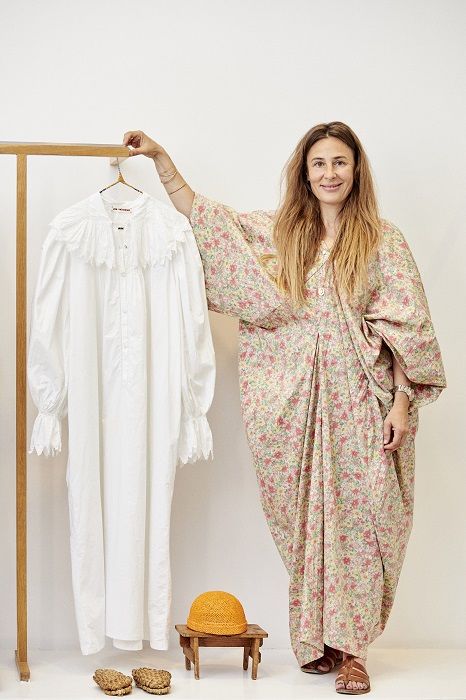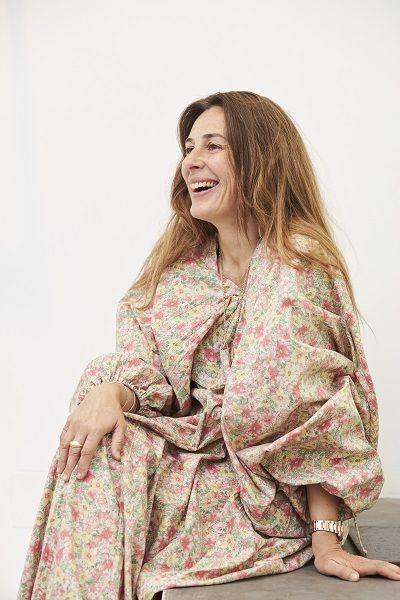
Ever since launching her eponymous brand in 2015, and finding a physical space to build a close rapport with her faithful clientele, Eva Velazquez has looked at antique garments the exact same way: with reverence, passion and care.
Listening to her talking about her love of vintage clothing is indeed contagious, and Velazquez understood early that upcycling was the right way forward.
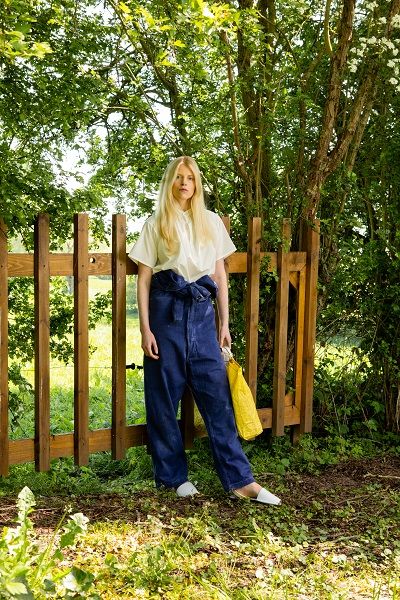
Working closely with her brother Hugo, whose innovative line of contemporary garments made out of upcycled fabrics is also sold in her store, the designer is figuring out new ways to increase her audience without compromising or renouncing her own integrity.
In this exclusive interview, we discussed the psychological effects of the pandemic on consumers, how Velazquez feels about vintage clothing, and why the way we purchase clothes is also part of a broader lifestyle, which increasingly defines us as individuals.
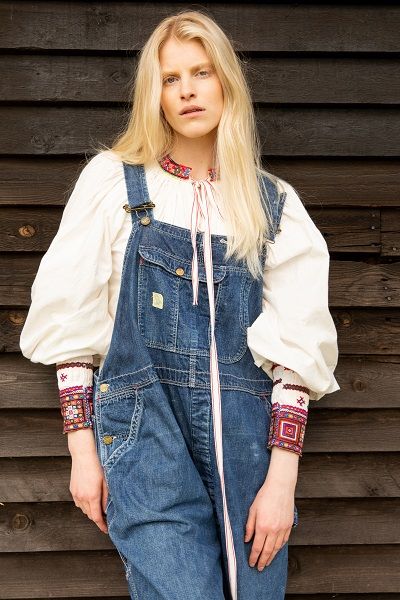
You launched your brand in 2015 and you have been incredibly consistent ever since.
When I started out 7 years ago, I really followed my instincts focusing on upcycling, even though I knew deep down that it would be the best way to go forward. In fact, it was probably quite visionary from me to do this, but I just had to follow my heart.
Do you still have the same passion for clothing today?
Definitely. I always believed in this project, even if it still is a lot of hard work. You cannot rely on creativity only, but need to understand how to handle costs and develop a marketing method that feels right for you. Of course, I love chasing antique clothes, washing and repairing them, but that’s only one aspect of the work that I do.
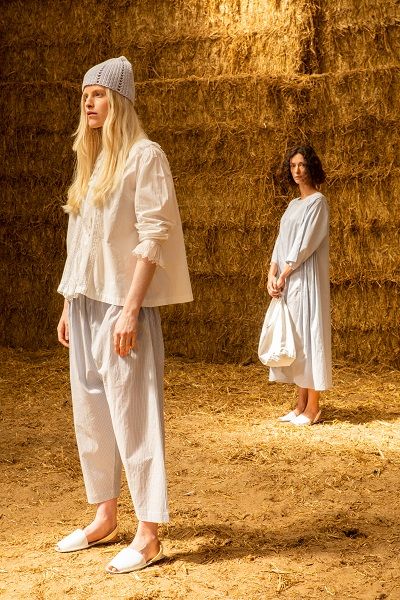
Did the pandemic change anything in the way you look at your own work, and did you notice that clients changed their behavior as well?
The way I work is avoiding stock and following the demand I have from clients. It was quite new when I started out to operate in this way, but now I see other brands doing exactly the same thing. At the start of the pandemic, I had to close the store, because there was no staff available to sell. At the same time, I did not have inventory and could therefore start slowly when stores were reopening again. My system allows me to have more flexibility that way.
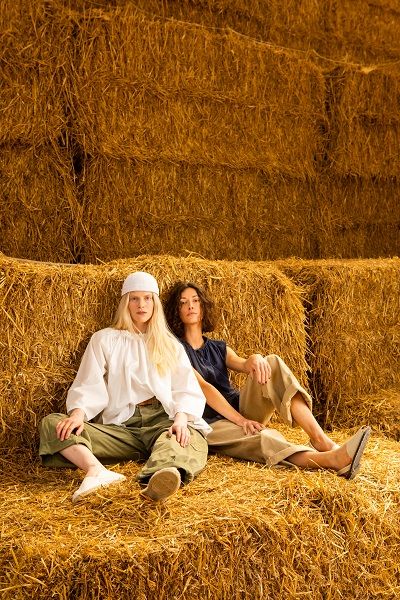
How many collections do you sell in-store?
We have Ancien Atelier, Eva Velazquez and my brother’s collection as well. For my eponymous line, I work with modern and vintage materials, all upcycled of course.
How did you build up your loyal and international clientele?
It happened gradually. I’ve worked very hard on educating my clients in order to make them understand why vintage garments matter, and why they should clean, repaired and restored in order to give them a brand-new life. I love the idea that garments have a past and their own stories to tell.
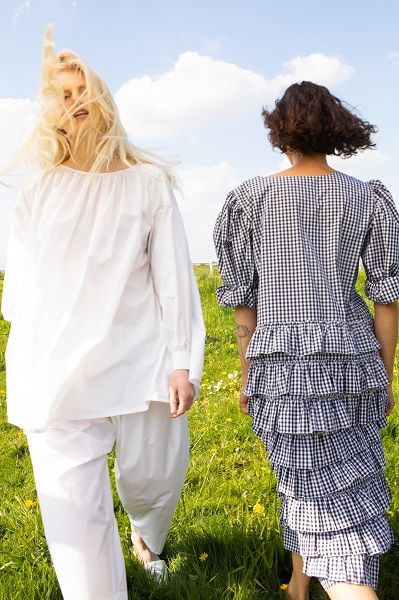
Are you going to launch an online store soon?
I am trying to find new ways to reach more people, without compromising my main values. I don’t want to sell anonymous garments to anonymous people, but I realized that by showing a new silhouette online each week and really explaining what it’s all about, I could answer a growing demand from foreign clients without going against what I stand for.

Many thought that the pandemic would be an opportunity to rethink fashion and create actual change. What is your feeling ?
I felt a new awareness coming from my customers during the pandemic. Suddenly, people were thinking a lot more about why they consumed and how their consumption patterns could affect others as well. Today, we care a lot more about what we eat for instance, so why shouldn’t we feel the same way about the clothes that we purchase? Post-pandemic, I started wondering if people were not gradually losing that sense of awareness.
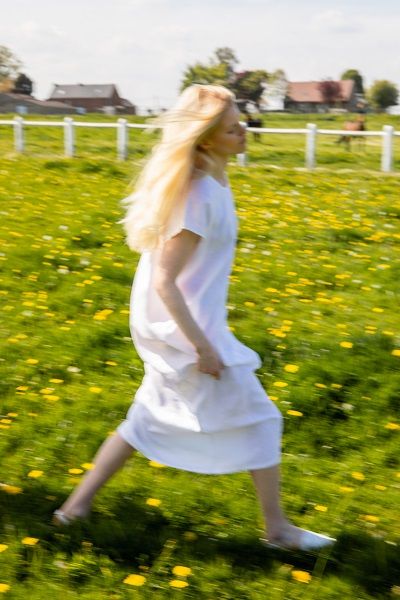
There are so many contradictions within our industry right now. Do you think that authenticity is the best way to go against this?
Of course. My discourse and storytelling haven’t changed for years, and I love doing things in an artisanal way. Is it about achieving huge numbers? No, it’s not. My work is primarily about passion and my love of collecting. When I go to flea markets in France, Spain or Italy, and I notice a special piece on the floor, that’s what keeps me going, and I see so much beauty in garments that have a history. What comforts me, too, is the idea that the pieces I sell will probably live for another 20, 30, or even 40 years. That makes me proud and happy as a designer. I worked for many commercial brands before, which allowed me to learn a lot and understand why I am here today doing what I do. My clothing is what I leave behind, and it’s become my legacy in a way.
